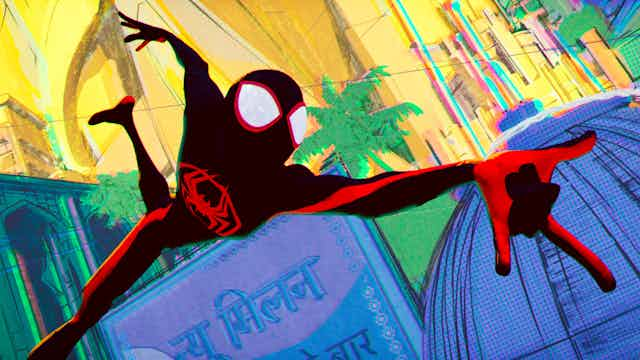“Animation is cinema. Animation is not a genre. And, animation is ready to be taken to the next step – we are all ready for it, please help us, keep animation in the conversation.”
This was Guillermo del Toro’s testament accepting the Academy Award for Best Animated Feature Film in 2023 for Guillermo del Toro’s Pinocchio, released by Netflix. As one of the most acclaimed modern auteurs – and one who has announced his intention to stick with animation as his preferred medium – his acceptance speech reads like a plea directly to the academy.
Animated films at the Oscars
The Oscars have had a storied history of engaging with animated cinema. Since 2002, they have awarded a Best Animated Feature award, first won by Shrek. This was a time of technological innovations for 3D animation (think Toy Story or A Bug’s Life), and of standout A-list voice performances (Robin Williams in Aladdin, or Shrek’s star-studded cast).
By including animated films as a standalone category, the Oscars ended up segregating them: animation was treated as its own thing. Beauty and the Beast broke ground as the first-ever animated nominee for the Best Picture Oscar in 1992, but only two films have achieved such a feat since.
Up (2009) and Toy Story 3 (2010) were Best Picture Oscar nominees (and Best Animated Feature winners) of their respective years. However, such recognition only came after the academy expanded its Best Picture category from five nominees to up to 10. This was a concerted effort to include more popular films in the Oscars due to waning audience interest, after Best Picture snubs of The Dark Knight and WALL-E.
If animated films have had difficulty breaking into the Oscars’ vision of a Best Picture, then voice talent has been outright bypassed for consideration in acting categories. Since Shrek, stars have increasingly taken on voice work for animated projects in ways that elevates them from a side-hustle to key parts of their CVs.
For instance, Chris Pratt and Anya Taylor-Joy’s promotional duties for The Super Mario Bros. Movie represent significant time and stardom investments for the sake of animated intellectual property.
Yet without the physical body to observe, the Oscars have ignored voice work in animated films. The most meaningful push to have a voice performance nominated was for Scarlett Johansson’s in Her where she played a computer operating system. Johansson’s performance was nuanced, played with chemistry against her co-stars, and, ironically, Her was not an animated film.
Are things changing?
The Oscars this year shifted their brand of “prestige” to value the “cinematic experience” (and box office money) in the age of streaming.
The sweep of Everything Everywhere All at Once and Best Picture nominations for Top Gun: Maverick and Avatar: The Way of Water in 2023 signal the academy conspicuously praising populist fare for bringing audiences into the physical cinema. This then hopefully attracts more audience eyeballs to an Oscars telecast where they are likely to have actually seen some of the nominees.
Read more: Winning everything everywhere all at once: 5 experts on the big moments at the Oscars 2023
Popular film’s infiltration of the Oscars even seeped into the acting categories. Everything Everywhere All At Once’s indie cred made nominations (and three eventual wins) for its stars logical and welcome, but even Black Panther: Wakanda Forever’s Angela Bassett scored a Best Supporting Actress nomination, the first acting recognition for the Marvel Cinematic Universe. Its online fandom was instrumental here, having opined the academy’s biases against their beloved franchise.
Now, Spider-Man: Across the Spider-Verse has arrived ahead of the 2024 Oscars race. The animated film boasts a star-studded cast, including past Oscar nominees and winners like Daniel Kaluuya and Hailee Steinfeld in key supporting roles. Shameik Moore’s lead vocal performance as Miles Morales is also exceptional. Still figuring out what it means to balance being Spider-Man with a complicated home and social life, he sounds remarkably recognisable as a modern teenager.
Credit for this extends to a snappy script and intricate editing that bounces through its complex multiverse setting and superhero super-stakes to focus on moving character development. Thematically, it reflects on the artistic value of the superhero genre, unpacking the Spider-Man lore across its many iterations. And, of course, the visual artistry on display is mind-blowing, truly pushing cinematic excess in ways that only animation (currently) can.
Spider-Man: Across the Spider-Verse is the kind of popular cinema that the academy is currently primed to take more seriously. It’s on track to become one of the year’s box office successes, serves a dedicated fandom, showcases a stacked cast and dynamically plays with genre and narrative conventions.
As part two of a trilogy, it is unlikely to take out the Best Picture race altogether (Beyond the Spider-Verse, coming in 2024, is the more likely candidate if it sticks the landing). But it is still well-positioned to break through the confines of the Best Animated Feature category.

